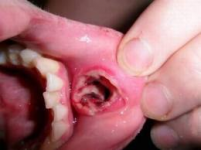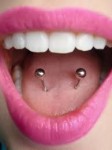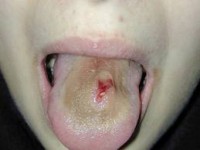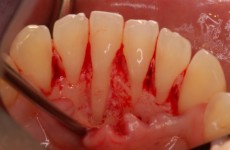Body Piercing has become a very popular form of self-expression especially in young people. A tongue piercing can be very dangerous for your health even though it may look cool. The millions of bacteria that are present in your mouth can cause infection and swelling from the oral piercings. In some instances, it may become very hard for you to breathe if there is swelling of the mouth/tongue or if a part of the jewelry breaks off and blocks the airway. It is also possible that you could bite down on it and break a part of your tooth. Sometimes the fracture can be such that you may be a root canal treatment or even extraction. It could also lead to infections like hepatitis and endocarditis too.




Below is a list of few things to consider before considering an oral piercing:
1. Interference with chewing, swallowing and speech.
2. Infection, Pain and Swelling: The mouth is an ideal place of infection due to the presence of a moist environment with numerous bacteria. An infection of the oral piercing could become life threatening very easily if the airway is blocked by the swollen tongue.
3. Hypersensitivity to metals: It is also very common to see allergic reactions at the pierced site.
4. Damage to Teeth, Fillings and Gums: A very common habit of biting or playing with the piercing can cause injury to your teeth, existing fillings and your gums too.
5. Nerve Damage: A tongue piercing can cause temporary and sometimes permanent numbness of the tongue. This can affect how you taste food and/or how you move your mouth.
6. Excess Drooling: It can cause an increase in your saliva production too.
7. Difficulty during a dental appointment: Your oral jewelry can interfere with your dental treatment by blocking the X-rays.
If you already have one, then here are a few things you could do:
1. Getting checked by your dentist or physician to see if there is sign of infection.
2. Keeping the site clean and free from debris that can collect around the jewelry by brushing and using a mouthwash after every meal.
3. Avoiding the clicking of the jewelry against teeth to prevent fracture of teeth/ filling and damage to gums.
4. Making sure that the jewelry is tightly secure to prevent accidental ingestion of loose parts.
5. Wearing a protective mouth guard and removing jewelry before sports events.
6. Seeing your dentist regularly.
7. Lastly, considering removing the jewelry before too much damage is done.
For more information, call us at 205.833.5405.





